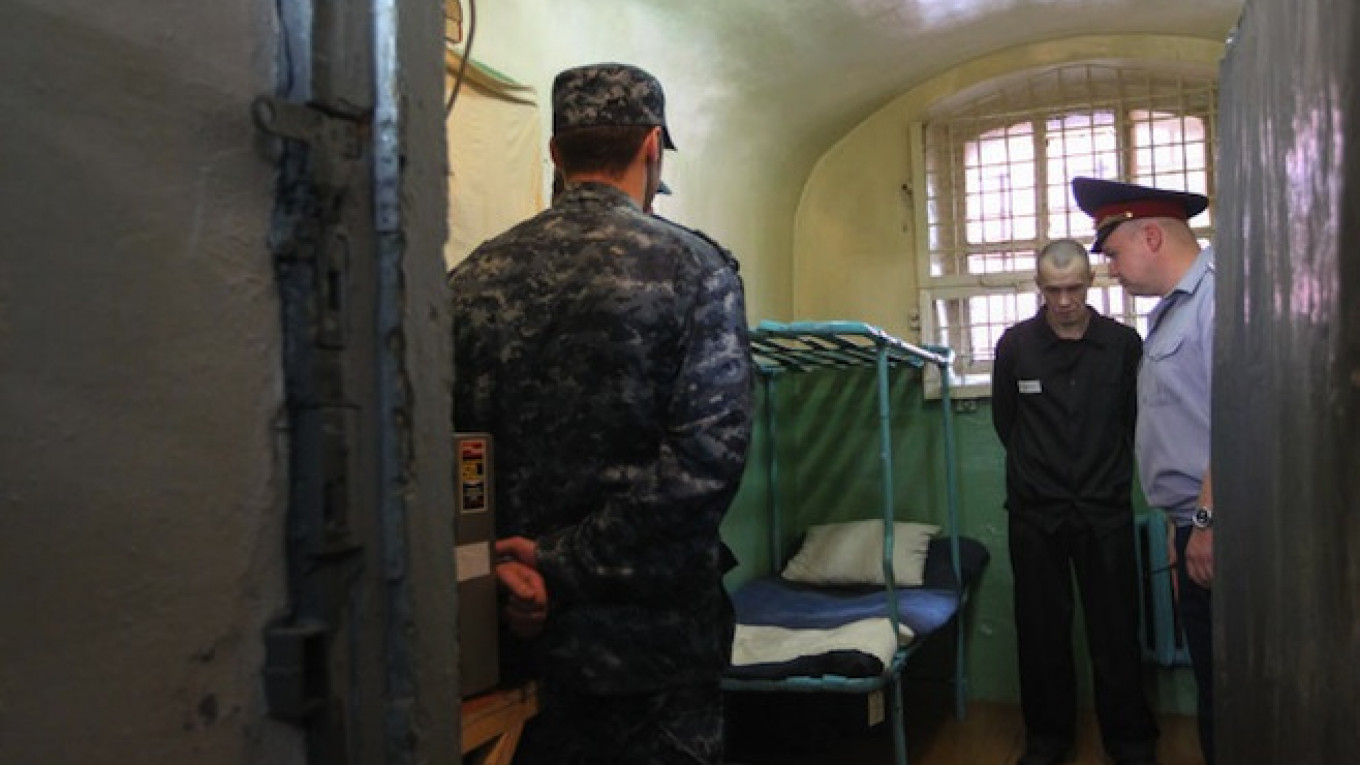Russia's parliament has granted preliminary approval to a bill, dubbed “sadists’ law” by critics, which details the acceptable use of physical force and weapons by prison guards against inmates.
The bill, passed by the State Duma in the first reading Wednesday despite rare opposition by a number of lawmakers, allows prison guards to “use physical force, including combat methods of fighting, if non-forceful means cannot ensure that duties are fulfilled.”
The broad list of situations where force may be used includes “prevention of crimes or violations of the incarceration regime,” and “performing the duties of escorting [prisoners],” according to the bill published on the State Duma website.
Two parliamentary factions, A Just Russia and the Communist Party, or KPRF, voted against the bill — submitted by the Cabinet earlier this year — in a rare show of opposition within the Russian legislature, lawmaker Dmitry Gudkov, the only State Duma deputy known for his support of opposition activists, said on his Facebook page.
“Many understand that legalized violence is dangerous,” Gudkov said. “Anybody can become its victim, including those who have adopted such a bill.”
The preliminary approval of the bill comes on the heels of another move, proposed by a government legislative panel earlier this week, to ban nongovernmental organizations that the government has designated as “foreign agents” from monitoring human rights in prisons, according to the Vedomosti business daily.
A Russian law requires all NGOs that receive funding from abroad and engage in vaguely defined political activity to register as “foreign agents” — a term dating back to the Soviet era when it denoted espionage. Scores of respected human rights groups have already been branded.
Banning the groups from sending their representatives to public commissions that monitor human rights in prisons “makes civic control decorative and useless,” member of the presidential Human Rights Council Andrei Babushkin said, Vedomosti reported.
“A multitude of organizations that have experience in public control have already been [designated as] agents, or could be deemed as such because of the incorrect definition of political activity,” Babushkin was quoted as saying.
The bill on the use of force in prisons may further erode inmates' rights, according to critics. Its detailed wording on how and where prison guards may or may not hit prisoners was among the factors that prompted human rights activists to denounce the bill as the “law of sadists.”
Instead of restricting the guards' use of force, the bill “prompts prison colony employees to hit inmates for any violations of the regime — for instance, for failing to greet [a guard] or for sitting on a bed,” leader of the For Human Rights movement Lev Ponomaryov said in his blog on the Ekho Moskvy website this summer, after the bill was introduced.
The bill lists weapons and other means that guards can use — including “special batons,” “special gas means,” electric and flashlight shockers, water cannons and dogs. In the absence of weapons, guards may use “any available means,” the bill says.
The bill also stipulates where on inmate's body a guard may or may not target for beating: “It is unacceptable to inflict blows with a special baton on a person's head, neck, collarbone region, stomach, genitalia, the region of the heart,” the document reads.
Prison guards would be exempt from penalties if they injure an inmate or “other persons” while following the bill's regulations on the use of force, the document says.
On the eve of the Wednesday vote at the State Duma, lawmakers and human rights activists have drafted a “compromise” version of the bill, intended to reduce the possibility of guard brutality, but none of the amendments were included in the document presented for the first-reading vote, Gudkov said.
Proponents of the bill attributed the failure to include the amendments to “technical difficulties,” Gudkov said.
Contact the author at [email protected]
A Message from The Moscow Times:
Dear readers,
We are facing unprecedented challenges. Russia's Prosecutor General's Office has designated The Moscow Times as an "undesirable" organization, criminalizing our work and putting our staff at risk of prosecution. This follows our earlier unjust labeling as a "foreign agent."
These actions are direct attempts to silence independent journalism in Russia. The authorities claim our work "discredits the decisions of the Russian leadership." We see things differently: we strive to provide accurate, unbiased reporting on Russia.
We, the journalists of The Moscow Times, refuse to be silenced. But to continue our work, we need your help.
Your support, no matter how small, makes a world of difference. If you can, please support us monthly starting from just $2. It's quick to set up, and every contribution makes a significant impact.
By supporting The Moscow Times, you're defending open, independent journalism in the face of repression. Thank you for standing with us.
Remind me later.






